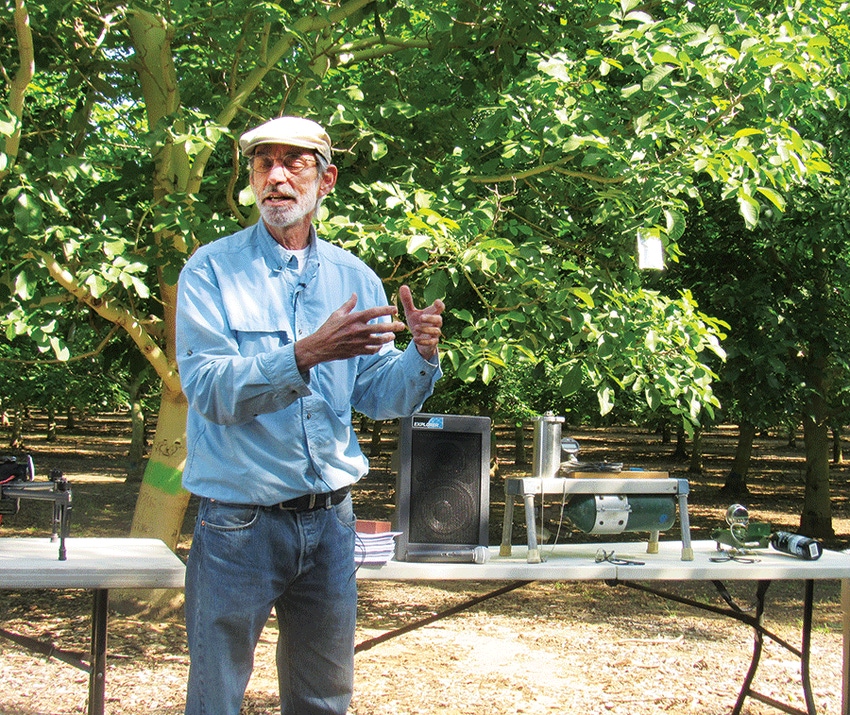
While most California walnut growers have long believed they needed to start early with irrigation to keep the trees healthy and productive through the hot summer months, new research has called that thinking into question.
A long-term experiment in an orchard near Red Bluff has shown that growers can improve production if they hold off on watering until later in the season while directly measuring their trees' water stress levels.
The findings from University of California researchers could help growers optimize their water use, asserts Diane Nelson in an article in Outlook Magazine, the alumni magazine for the UC-Davis College of Agricultural and Environmental Sciences.
"It's a game-changer," says Tehama County grower Hal Crain, whose walnut orchard near Red Bluff is the site of the irrigation research.
“It's clear to me you can improve nut quality and yield by applying water based on what the tree wants and needs, rather than just watering when it's hot outside and the soil is dry," Crain tells the magazine. "That's a big deal for walnut growers and for the entire agricultural industry.”
UC Cooperative Extension farm advisors discussed the research during a field day in June while touting the importance of using pressure chambers to monitor trees' water stress.
Ken Shackel, UC-Davis plant scientist, told growers the pressure bomb and other monitoring devices most recently helped researchers determine that it’s better to hold back on irrigating walnut trees in the spring rather than in the summer.
“We would not have discovered this if we hadn’t had the technology to monitor stress,” he said.
To read Nelson's full article for the Fall 2018 edition of Outlook, click here.
About the Author(s)
You May Also Like






